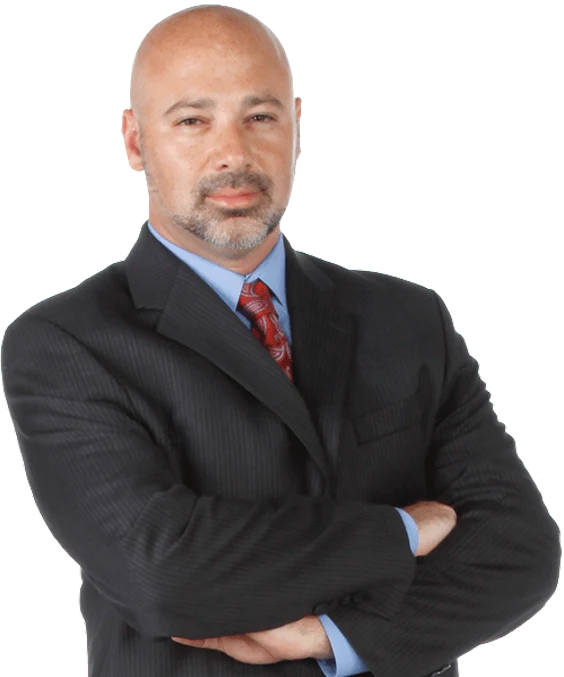The trust you placed in your church, your faith, and its leaders was supposed to be absolute. A church is presented as a sanctuary, a place of safety and spiritual guidance.
A priest, pastor, rabbi, or youth minister is held up as a pillar of the community, a person to whom you turn for support and protection. When that sacred trust is violated by sexual abuse, the devastation is profound. It is a betrayal that attacks not only your body and mind but also your spirit and your connection to your community.
At Horowitz Law, we see you. We hear you. And we stand with you. Our New York Church & Clergy Sexual Abuse Lawyers have one principle: to provide a powerful voice for survivors of sexual abuse. We are not a personal injury firm that takes these cases on the side.
Our practice pursues justice for survivors of sexual assault, with a deep and focused concentration on abuse that occurs within religious institutions.
We hold these powerful organizations and the perpetrators they protect accountable for the harm they cause. Your path to reclaiming your power and demanding accountability starts here.
Table of Contents
- How Religious Institutions Conceal and Enable Abuse
- The Path to Justice Through Civil Litigation
- Why Choose Horowitz Law as Your New York Clergy Sexual Abuse Litigation Lawyer
- Your Legal Rights and Options in Florida
- Your Voice Deserves to Be Heard
The Profound Betrayal of Faith and Trust

Abuse at the hands of clergy or a church representative is a unique and devastating form of harm. The perpetrator is not just a person; they are a symbol of God, a trusted authority figure who uses their position of spiritual influence to groom, manipulate, and abuse.
This abuse of power creates layers of trauma that survivors must confront. The abuser often warps religious teachings to justify their actions, to silence the victim, and to instill a deep sense of guilt or shame. New York sexual abuse lawyers can help survivors navigate the complex legal and emotional challenges of seeking justice, holding abusers accountable, and reclaiming their lives.
This betrayal is a calculated violation that takes many forms:
- Spiritual manipulation: The abuser uses scripture, prayer, and their religious authority to confuse and control you. They may frame the abuse as a "special" or "holy" relationship, or threaten divine punishment if you tell anyone, creating a spiritual prison that is difficult to escape.
- Grooming under the guise of mentorship: The abuser often begins by establishing a close, mentor-like relationship. They offer special attention, guidance, or privileges, slowly blurring boundaries until you are isolated and vulnerable. This makes it difficult for you and others to recognize the relationship for what it is: a predatory setup.
- Exploitation of confession and counseling: The sacred and private space of confession or spiritual counseling is a common setting for abuse to begin. The abuser exploits your vulnerability and the expectation of confidentiality to gather personal information and initiate inappropriate contact.
- Community and family pressure: Your connection to the church is often deeply tied to your family and social life. The fear of being disbelieved, ostracized, or causing a schism within the community creates immense pressure to remain silent. The abuser and the institution count on this pressure to ensure your silence.
The law recognizes that a spiritual leader holds a position of profound influence, and the abuse of that power is a betrayal that carries significant legal consequences.
How Religious Institutions Conceal and Enable Abuse

The tragedy of clergy abuse is compounded by a second, equally devastating betrayal: the institutional cover-up. For decades, dioceses, archdioceses, and other religious governing bodies have been aware of the abusers in their midst.
Instead of protecting children and vulnerable adults, they chose to protect their reputation, their assets, and the perpetrators themselves. This is not a passive failure; it is an active, methodical effort to hide the truth.
We have seen these tactics employed by institutions time and time again:
- Moving abusers to new parishes: The most notorious tactic is quietly transferring a known abuser to an unsuspecting new community. This "shuffling the deck" allows the perpetrator to continue their abuse with a fresh supply of potential victims, while the institution avoids public scandal.
- Forcing secrecy through internal investigations: When an allegation arises, the institution often insists on handling it "internally." These secret proceedings are not designed to find the truth but to control the narrative, silence the victim, and protect the organization from legal liability.
- Demanding confidentiality and silence: Survivors who come forward are often met with pressure from church officials to keep the matter private, to "forgive and forget," or to sign non-disclosure agreements (NDAs) in exchange for a small, inadequate settlement. This buys the institution's silence at the expense of your justice.
- Discrediting and blaming the survivor: When a survivor persists, the institution and its lawyers may resort to attacking their character, questioning their motives, or suggesting they are misremembering or lying. This re-traumatizing tactic is a desperate attempt to evade responsibility.
- Concealing incriminating documents: For years, churches maintained "secret archives" or personnel files that documented credible allegations against priests and other leaders. These files were deliberately hidden from law enforcement and the public to prevent accountability.
These patterns of concealment are not just moral failings; they are calculated actions that constitute legal negligence and a fraudulent conspiracy to hide the truth from victims and the public.
The Path to Justice Through Civil Litigation

The criminal justice system often fails survivors of clergy abuse. Strict statutes of limitations may have expired, prosecutors may be unwilling to take on a powerful institution, or the available evidence may not meet the high burden of proof required for a criminal conviction.
A civil lawsuit provides a different and often more powerful path to justice. It shifts the focus from punishing the individual abuser to holding the entire institution accountable for its role in enabling and concealing the abuse.
A civil lawsuit gives you the power to achieve what the criminal system cannot:
- Force institutional accountability: A civil claim is directed at the deep pockets and the reputation of the institution. By seeking financial damages, you force the church to answer for its negligence in hiring, supervising, and retaining a known abuser.
- Uncover the truth through discovery: The civil discovery process is a formidable tool. Our attorneys use depositions, subpoenas, and requests for documents to compel the church to turn over its secret files. We expose the history of the abuser, the officials who knew about the abuse, and the decisions they made to hide it.
- Obtain financial compensation for your harm: No amount of money undoes the past, but a substantial financial recovery is a tangible measure of justice. It provides the resources for therapy, education, and other needs to help you rebuild your life. It also serves as a public acknowledgment of the immense harm you suffered.
- Drive systemic change: Public lawsuits and significant verdicts are the primary catalysts for institutional reform. When keeping abusers becomes too costly, institutions are forced to change their policies to protect children and prevent future abuse. Your case becomes a part of that change.
The civil discovery process is a powerful legal tool that compels institutions to open their secret files, revealing decades of hidden decisions and patterns of abuse.
Why Choose Horowitz Law as Your New York Clergy Sexual Abuse Litigation Lawyer

Making the decision to confront your abuser and the institution that protected them requires immense courage. The law firm you choose to stand with you must match that courage with unwavering dedication and a precise legal strategy.
Horowitz Law provides the focused representation your case demands.
- Our singular focus is your strength: We are a sexual abuse law firm. We do not handle car accidents, medical malpractice, or any other type of personal injury case. This exclusive dedication means our entire team, from our attorneys to our support staff, is committed to and knowledgeable about the unique legal and emotional issues in these cases.
- We pursue institutional liability: Our strategy targets the organization responsible for the abuse. We investigate the institution’s hiring practices, its failure to supervise, and its history of covering up similar allegations. We hold the entire system accountable, not just the individual perpetrator.
- A survivor-first approach: Your well-being is our priority. We create a safe, confidential, and supportive environment for you to share your story. We listen to your goals, and we build a legal strategy designed to achieve them. You remain in control of the decisions in your case.
- Unrelenting and strategic advocacy: We are relentless in our pursuit of evidence. We depose church officials, unearth hidden documents, and construct an undeniable case of institutional negligence. Our reputation for thorough preparation and determined litigation sends a clear message that we will not be deterred.
A law firm that handles only these cases brings a depth of knowledge and a refined strategy that general practice firms do not possess.
Your Legal Rights and Options in Florida

For survivors in Florida, the law provides specific avenues to seek justice. The state has laws that address the time limits, or statutes of limitations, for filing a civil lawsuit for sexual abuse.
In some cases, especially those involving childhood abuse, these time limits may be extended, providing a "look-back window" that allows survivors to file claims years or even decades after the abuse occurred.
- Time limits to file a claim: The window to file a lawsuit is not infinite. It is vital to understand how Florida's statute of limitations applies to the specific facts of your situation. Delaying action may risk forfeiting your right to seek justice forever.
- Liability of the institution: Florida law recognizes that an organization like a church has a duty to protect children and vulnerable individuals under its care. We use legal principles of negligence, negligent supervision, and fraudulent concealment to build a case against the institution.
- The concept of fiduciary duty: A clergy member stands in a position of special trust, known in the law as a fiduciary duty. When they abuse that trust, the violation is particularly severe, and the law holds them and their superiors to a higher standard of accountability.
- Available damages: A successful civil claim in Florida allows a survivor to recover financial compensation for a wide range of harms, including past and future medical and therapy costs, pain and suffering, emotional distress, and lost enjoyment of life.
Florida's laws provide a defined window for justice; understanding these timelines is the first step toward holding accountable those who caused you harm.
Your Voice Deserves to Be Heard

Taking the first step is an act of profound strength. You have carried this burden for long enough. You are not alone, and you are not to blame. The responsibility lies with your abuser and the institution that failed to protect you.
Contact Horowitz Law for a completely free and 100% confidential consultation. You will speak with a compassionate legal professional who will listen to your story without judgment. We explain your legal options in clear, straightforward terms. Your conversation is private. The choice to move forward is always yours.
Call us today at (954) 641-2100 or fill out our secure online form to begin the conversation. Let us help you find your voice and demand the justice you deserve.